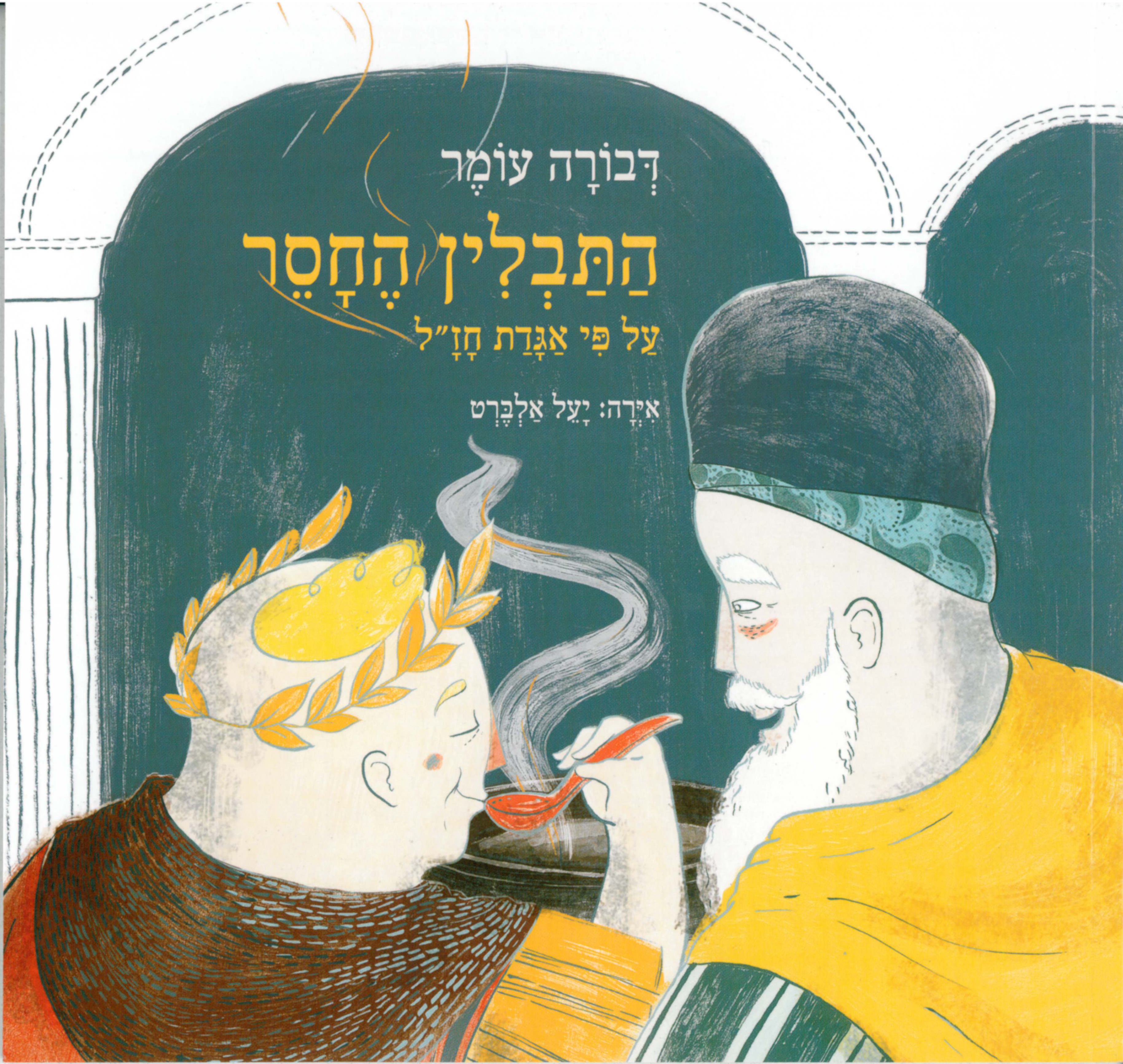Недостающая приправа
Двора Омер
Дорогие родители!
История о "недостающей приправе" – это версия для детей известной легенды наших мудрецов, которую составила писательница Двора Омер. Император Антонин наслаждался вкусом чудесных субботних блюд в доме Рабби Иехуды Ха-Наси. Несмотря на то, что еда была холодной, субботняя трапеза была восхитительна, вкуснее, чем в будний день! После этой истории вам и вашим детям предлагается поразмышлять над уникальностью Вашей субботы и попытаться определить, что придает ей особый вкус.
Занятия в кругу семьи
- У каждой семьи есть особая "приправа", которая добавляет вкус и запах и отличает ее и ее образ жизни от других семей. Прочитав рассказ, вы можете поговорить с вашим ребенком о том, как ваша семья отмечает субботу. Вы можете сделать со своими детьми альбом с рисунками "нашего шаббата", на которых будут изображены люди и особые составляющие вашей субботы.
- Вы можете рассмотреть иллюстрации, которые сопровождают рассказ. Поищите лошадь и козу. Что они делают на протяжении всего повествования? Их мимика указывает на их мысли. Если бы животные могли говорить, что бы, по-вашему мнению, они думали о "недостающей приправе"?
- Стоит обратить внимание детей на одежду персонажей и пейзаж Галилеи на иллюстрациях, сопровождающих рассказ и характеризующих период Мишны. Можно рассмотреть изображение на странице XX и
сравнить одежду Рабби Иехуды Ха-Наси и римлянина Антонина. Прочитав рассказ, вы, возможно, захотите нарядиться его героями или даже постелить скатерть, накрыть стол и всем вместе воспроизвести историю.
- « О вкусах и ароматах ...»: Вы можете подготовить смесь пряностей для церемонии Авдалы или как духи для гардероба. Пусть ваш ребенок выберет специи с приятным для него запахом (например, корицу или гвоздику). Засыпьте специи в небольшой мешочек, завяжите, украсьте и нюхайте – ведь у Вас теперь есть собственный мешочек с благовониями ручной работы!
- Любите ли вы приглашать и ходить в гости на шаббат, так же как Рабби Иехуда и Антонин? Многим детям нравится участвовать в подготовке к приходу гостей. Они могут сделать табличку с надписью "Добро пожаловать" на двери, помочь накрыть на стол, помочь на кухне или украсить стол специальными рисунками для каждого из участников трапезы.
- Известно, что Рабби Иехуда Ха-Наси жил в городах Бейт Шаарим и Ципори, которые находятся в Нижней Галилее. Вы можете найти их на карте или в Интернете, показать детям фотографии археологических находок эпохи Мишны и провести "виртуальное путешествие" в национальные парки этих мест. Если вам представится такая возможность, стоит отправиться в семейное путешествие, чтобы самостоятельно посетить эти места!
Кто такие Рабби Иехуда Ха-Наси и Антонин?
Рабби Иехуда Ха-Наси был известен своей мудростью, богатством и властью. Он также был первым лидером среди мудрецов после уничтожения Второго Храма, поэтому и получил прозвище «Ха-Наси» - глава поколения. Он возглавлял Синедрион (Верховный еврейский суд) и составил Мишну.
Рабби Иехуда Ха-Наси родился в период с 135 до 137 нашей эры. За время своей деятельности он перенес центр руководства и Синедрион в город Ципори, где он прожил большую часть своей жизни. Рабби Иехуда скончался в глубокой старости в 220 г. н.э. и был похоронен, вероятно, в Бейт Шаарим.
Притча о недостающей приправе является одной из многих, свидетельствующих о хороших отношениях между Рабби Иехудой и важной римской персоной по имени Антонин. Трудно определить точно, кто был данный Антонин, поскольку все императоры того периода носили это имя.
МидрашБерешитРабба (11 глава, 4 раздел):
Рабби [Иехуда Ха-Наси] сделал пир для Антонина в субботу.
Принесли ему холодное блюдо, [блюдо было холодным, потому что его не подогревали в субботу]
Тот поел и ему понравилось.
Сделали ему трапезу в будний [день], принес ему горячую еду.
Сказал ему [Антонин]: тогда мне понравилась больше, чем сейчас.
Сказал ему [рабби Иехуда]: здесь не хватает одной приправы.
Сказал ему [Антонин]: разве есть такая приправа, которой нет у императора на складах?
Сказал ему [рабби Иехуда]: здесь не хватает субботы, разве она у тебя есть?





